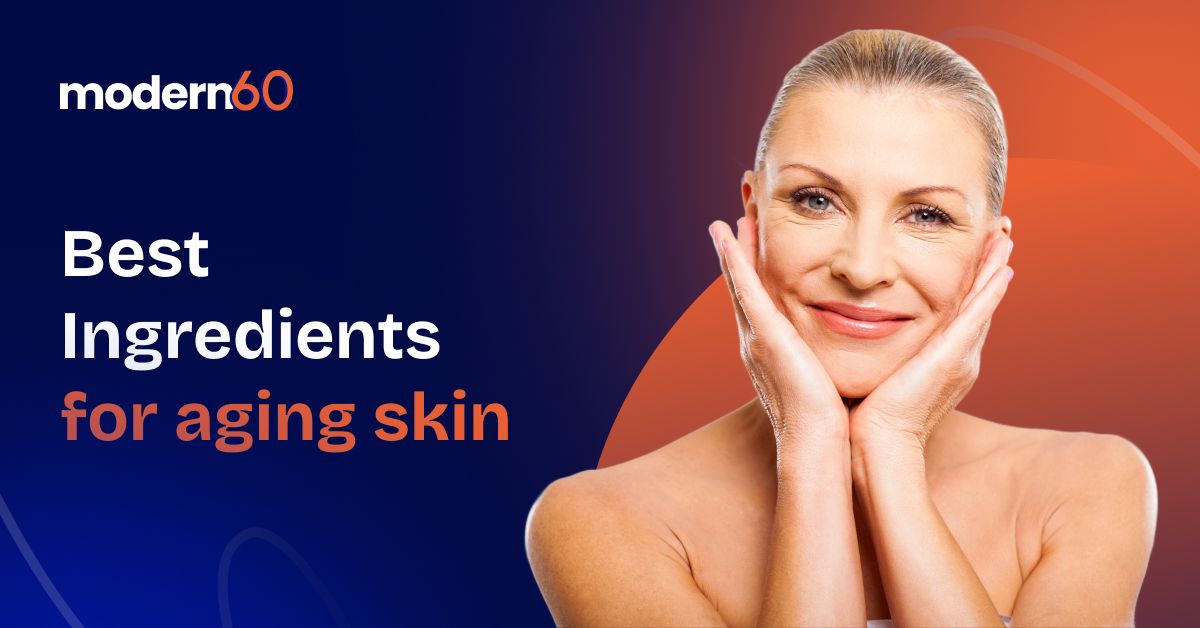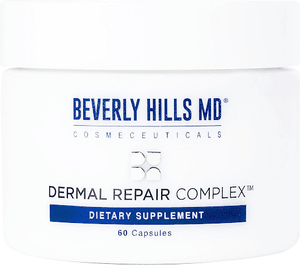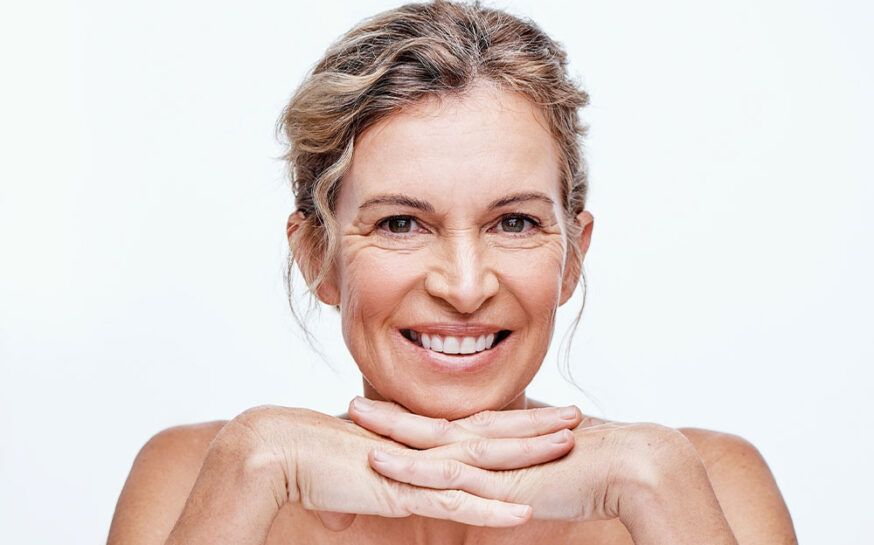Come your late 20s, and fine lines, sun spots, and dry skin start to show. And off you scurry to a supermarket or Google, if you will, to find the best anti-aging products. You pick a product or two and find yourself slathering on one serum after another in the quest to erase your fine lines, but to no avail! Chances are you are using a product with ingredients that don’t suit your unique needs.
Best Natural Anti-Aging Ingredients
Vitamin C
This powerful antioxidant helps neutralize free radicals, which damage skin cells, and supports collagen production, making it an essential part of many anti-aging skincare products. Pureance Lift & Glow Organic Eye Cream, for instance, contains the extracts of the Kakadu plum, a fruit native to Australia and rich in vitamin C. Additionally, the fruit has lutein, which may benefit eye health and work with vitamin C to reduce dark circles and spots, puffy eyes, and wrinkles.
You can also reap the benefits of vitamin C by adding kiwis, broccoli, berries, oranges, and Brussels sprouts to your meals. Ensure that you pair them with iron-rich sources for maximum absorption.
Punicic Acid
This is a type of omega-5 fatty acid that can boost collagen, manage sebum production, and reduce wrinkles. It also has anti-inflammatory properties that help reduce swelling and redness caused by acne, sunburn, rosacea, and some autoimmune conditions. Punicic acid is primarily found in pomegranate seed oil, a key ingredient in many anti-aging skincare products to improve skin elasticity and regeneration.
Bakuchiol
This is extracted from the Bakuchi or Babchi plant found in some parts of Asia and Southern Africa. It is a popular vegan skincare ingredient known for stimulating collagen production and addressing signs of premature aging. Bakuchiol is also a common retinol alternative, one of the reasons you will see it in products like Pureance’s Cellular Restore Serum and Dr.Jart + Prejuvenation Firming Bakuchiol Cream.
Best Scientifically Proven Anti-Aging Ingredients
Peptides
Collagen, the protein responsible for the skin’s elasticity and structure, is formed with the help of peptides. These short chains of amino acids are common in anti-aging skincare products, as they help reduce wrinkles and make the skin firmer.
Hyaluronic Acid
Loss of moisture, caused by the decreased production of hyaluronic acid in the body, is a major contributor to saggy skin. This compound gives the skin its natural ability to retain moisture. So, moisturizers and supplements, like Beverly Hills’ Dermal Repair Complex, containing hyaluronic acid, can do wonders for your skin and make it look plump. The compound also accelerates wound healing, which can reduce sunburn and acne to some extent.
Ceramides
These essential fatty acids create a barrier on the skin’s outer layer, helping it retain moisture and prevent infection. However, as with hyaluronic acid, the production of ceramides decreases with age. So, to strengthen this barrier, ceramide-containing skincare products, like Lancome’s Advanced Génifique Repairing & Restorative Night Cream, can help.
Why Is Choosing the Right Anti-Aging Ingredients Important for Your Skin?
The choice of ingredients can make all the difference in how your skin looks and feels. When you pick what suits your skin type and needs, you are more likely to see favorable results. For example, if you have sensitive skin, retinols might not be the best option for you. Bukuchiol, on the other hand, can help you.
How to Use These Anti-Aging Ingredients in Your Daily Skincare Routine?
You can reap the benefits of these anti-aging ingredients through a holistic approach. For instance, eating foods rich in vitamin C and essential fatty acids can help reduce oxidative stress and inflammation. Similarly, following an anti-aging routine with hyaluronic acid- and peptide-rich products can hydrate and tighten the skin.
However, before introducing new products into your routine, talk to a healthcare professional. They can help you understand your skin better and suggest products accordingly. They may even prescribe supplements like vitamin D for better absorption of other anti-aging compounds and vitamins.
An anti-aging skin care routine should ideally have products and ingredients that suit your unique needs. A healthcare professional can help you evaluate your skin and suggest products addressing specific age-related skin concerns.
FAQs
What Is the Best Natural Ingredient for Wrinkles?
Vitamin C is a powerful natural ingredient that can neutralize free radicals and reduce fine lines. That said, you may have to lay off vitamin C serums if you use other skincare products with ingredients like retinol. Besides that, ensure you use a serum with an active form of vitamin C and a pH lower than 3.5.
Can I Mix Natural and Scientifically-proven Anti-aging Ingredients?
Certain skincare ingredients, such as vitamin C and ferulic acid, work well together and can be safely mixed. They are brightening agents that can help reduce uneven skin tone and pigmentation. That said, mixing certain skincare ingredients, such as vitamin C with AHAs/BHAs, can do more harm than good. They can cause severe irritation and redness. So, it is better to consult a dermatologist or skincare professional before combining multiple ingredients.
What Is the Best Ingredient for Anti-Aging if I Have Sensitive Skin?
Bakuchiol is an ideal option and a great substitute for retinol. Apart from that, hyaluronic acid is gentle and hydrating, making it suitable for sensitive skin.
Which Ingredients Work Best – Natural or Scientifically-proven?
Both are effective for skin care. However, choose ingredients that best suit your skin and target your specific concerns. For example, if you have sensitive skin, limit the use of chemical exfoliants to once a week. Similarly, if you have acne-prone skin, avoid certain plant-based extracts like those derived from algae, as these can cause inflammation.
Is it Safe to Use Multiple Anti-Aging Ingredients Together?
Using multiple anti-aging ingredients at the same time is generally safe and can even be beneficial. Mixing these can help address different skin concerns. Vitamin C, for example, helps protect against oxidative stress and brightens the skin, while hyaluronic acid provides deep hydration and plumps the skin. So, using them together is often recommended. However, make sure you layer them in the correct order.
Which Anti-Aging Ingredients Work Best for Dry Skin?
Hyaluronic acid is a humectant and can hold up to 1,000 times its weight in water. It is hydrating and can soothe dry, itchy skin. You can also invest in a product containing ceramides to protect and lock in moisture.











There are no comments yet